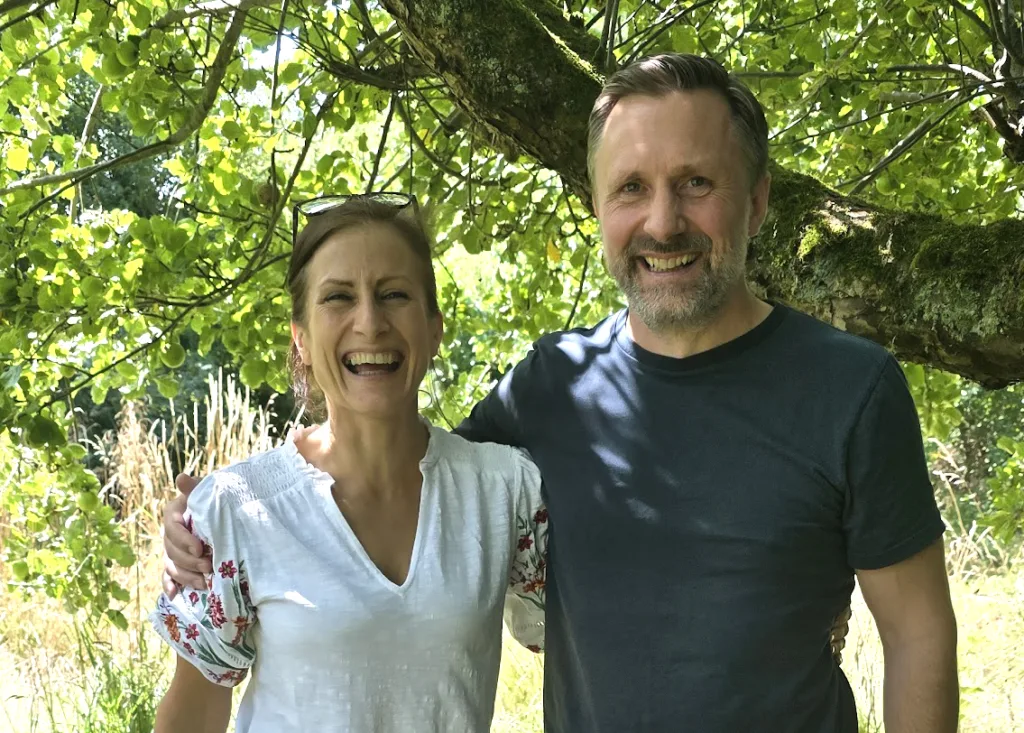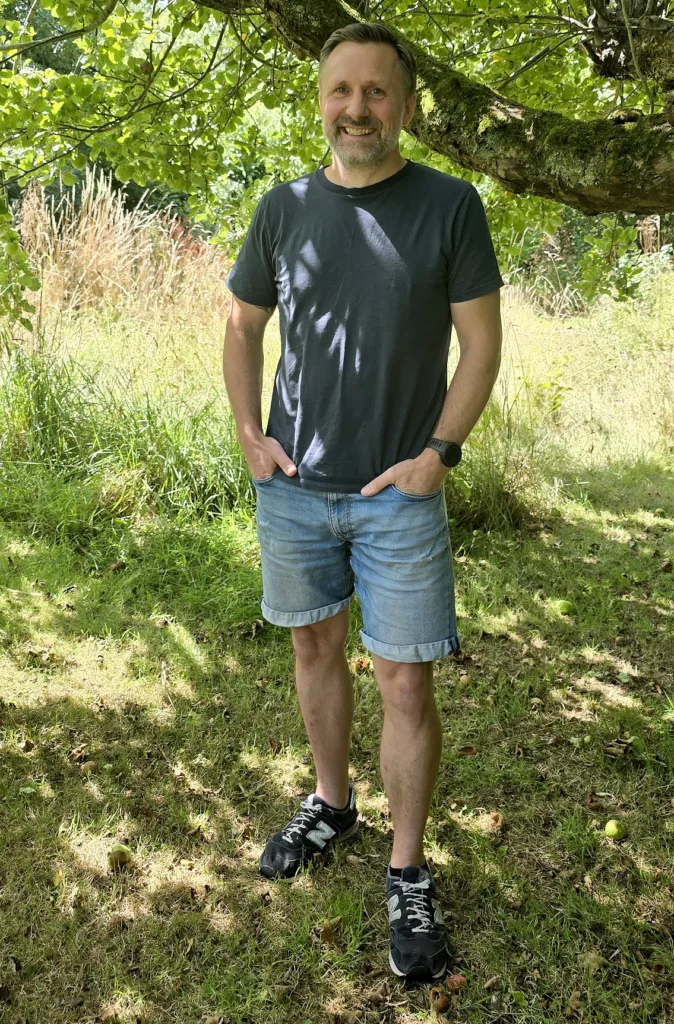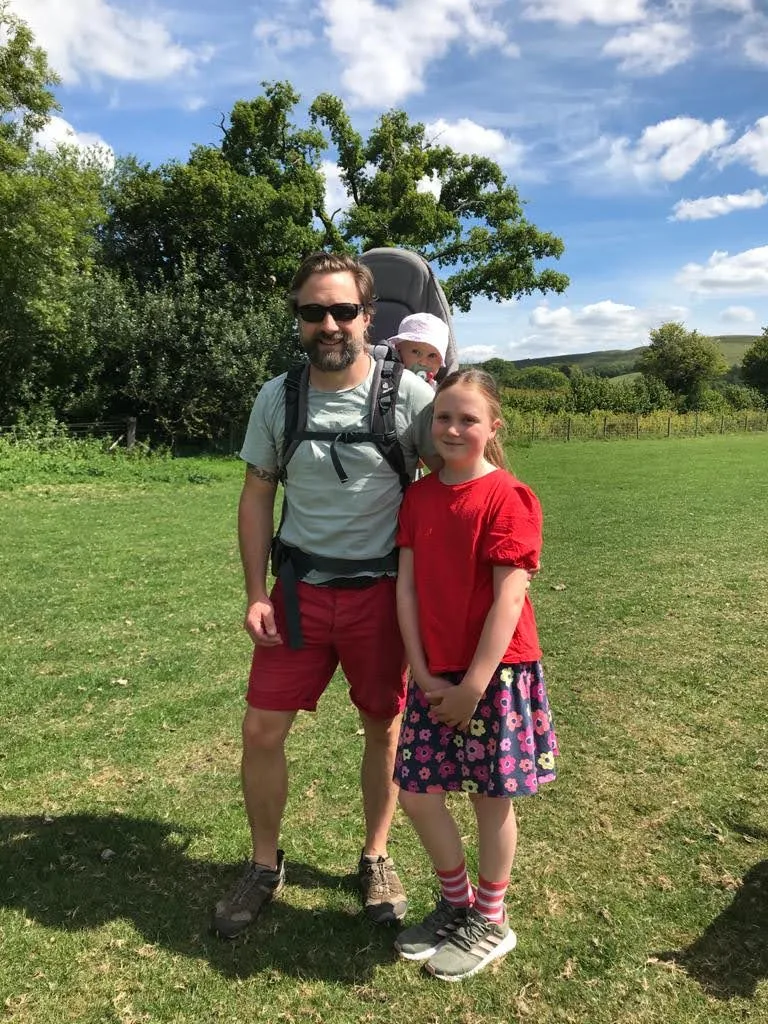Diagnosed at 47, Matt Riggs is tackling a 45km Inca Trail trek with Parkinson’s for company, one high-altitude step at a time
‘I was expecting something else,’ Matt says. ‘Parkinson’s wasn’t even on my radar.’
It took nearly two years for Child Okeford resident Matt Riggs to receive a diagnosis. The symptoms crept in gradually – hand tremors during kickboxing, aching shoulders … ‘sometimes you think your legs feel a bit funny, so you you start wondering what’s wrong with you. You know something’s not right, but it’s hard to pin down,’ he says. Parkinson’s is notoriously difficult to diagnose in younger people: only around 2,000 people in the UK have what’s known as young-onset Parkinson’s, diagnosed under the age of 50. Matt is just 48.
Move it
Once diagnosed, he decided not to stand still. Instead, he and his sister Caroline signed up to trek the Inca Trail in Peru this September – 45km of steep, high-altitude terrain that ends at the ancient site of Machu Picchu. ‘It’s not Everest,’ he says. ‘But it’s high – we’re talking around 4,800m at some points. And the steps are brutal. The Incas really liked stairs.’
For someone living with Parkinson’s, even small physical challenges can be unpredictable. ‘Some days I wake up and I feel fine. Other days, my legs feel heavy, or I’m off balance. That’s part of the challenge – getting up and doing it anyway.’
To prepare, Matt is focusing on what research increasingly suggests is the most effective way to slow the progression of Parkinson’s: exercise. ‘There’s no cure. The drugs just mask the symptoms. But they’ve found that intensive physical activity can actually slow it down. That’s what I’m hanging on to. I go to the gym twice a week, and I work on strength and balance. I’ve been seeing a physio once a month, just to keep me moving: I get stiff in my hands, shoulder and back, and they just iron out the creases, allow me to keep going.
‘It’s about staying upright, literally. You feel this pull, like Parkinson’s is trying to drag you forwards and down, and exercise helps you resist that.’
He also tries to keep running, though it’s getting harder: ‘I tried to do Parkrun recently and found I couldn’t run more than about 200 metres without needing to stop. That was a bit of a shock – I used to be able to run 5k easily.’

Do the hard things
Matt still works at a local tech company in Blandford, balancing work pressures with family life – he has two daughters – and his commitment to raising awareness. ‘There are more than 40 symptoms of Parkinson’s – it’s not just tremors. There’s anxiety, depression, fatigue, even motivation itself – the part of your brain that produces dopamine is under attack. That’s what makes it such a tough disease to explain. It takes hold slowly. It’s the fastest growing neurological disease in the world, and it’s still underfunded and widely misunderstood.’
Matt has joined Park Life, a Dorset support group for people with young-onset Parkinson’s. ‘We meet every two months in Wimborne. It’s a good way to talk honestly about what we’re going through – the mental and physical side. You meet people in all stages. Some have lost relationships. Some can’t work. There’s real fear and stigma out there. So part of the reason for us doing the trek is showing that there’s still hope. You can still do hard things.’
Matt is also clear-eyed about the wider purpose of the trek: ‘We’re covering all the travel costs ourselves, so every penny raised goes straight to Parkinson’s UK.
‘There’s not been a major breakthrough in Parkinson’s treatment for many, many years,’ he says. ‘Nearly everyone’s on the same meds as me, and they’ve been used for years. They don’t slow the disease down – they just mask the symptoms. And as things get worse, you end up taking more just to keep going.’
His hope – and the focus of his fundraising – is that real progress might come soon.
‘They are developing other treatments, but we’d love to see something that actually stops the progression. That’s the goal. But it’s underfunded. The profile is low.
‘I think sometimes people assume because Parkinson’s doesn’t kill you straight away, it’s not urgent. It creeps up on you – there are people out there like me, who you could meet me and think there’s nothing wrong with me quite easily. But others who are more advanced literally can’t get out of bed, can’t feed themselves, can’t wash … it really is bad when it gets to those stages.’
Keeping on
That’s why he’s so keen to support charities like Parkinson’s UK and Cure Parkinson’s. ‘They direct money into research. Into finding a cure. And they provide Parkinson’s nurses, which makes a huge difference. It takes pressure off the consultants. You’ve got someone you can call for advice, who really knows what you’re dealing with. That kind of support matters more than people realise.’
Caroline, who will join him on the trek, says it’s been inspiring to see how Matt has channelled his diagnosis. ‘Action is the antidote to despair,’ she says. ‘That’s what this is – not giving up, not giving in. I’m incredibly proud of him.’
‘It’s just one step at a time, isn’t it?’ says Matt. ‘I’m not going to pretend it’s easy. But you can’t focus on the end point. You have to look at what you can do today – and then do it.’
Support Matt and Caroline’s Inca Trail fundraising trek for Parkinson’s UK via the Matt Riggs JustGiving page here
by Courtenay Hitchcock




